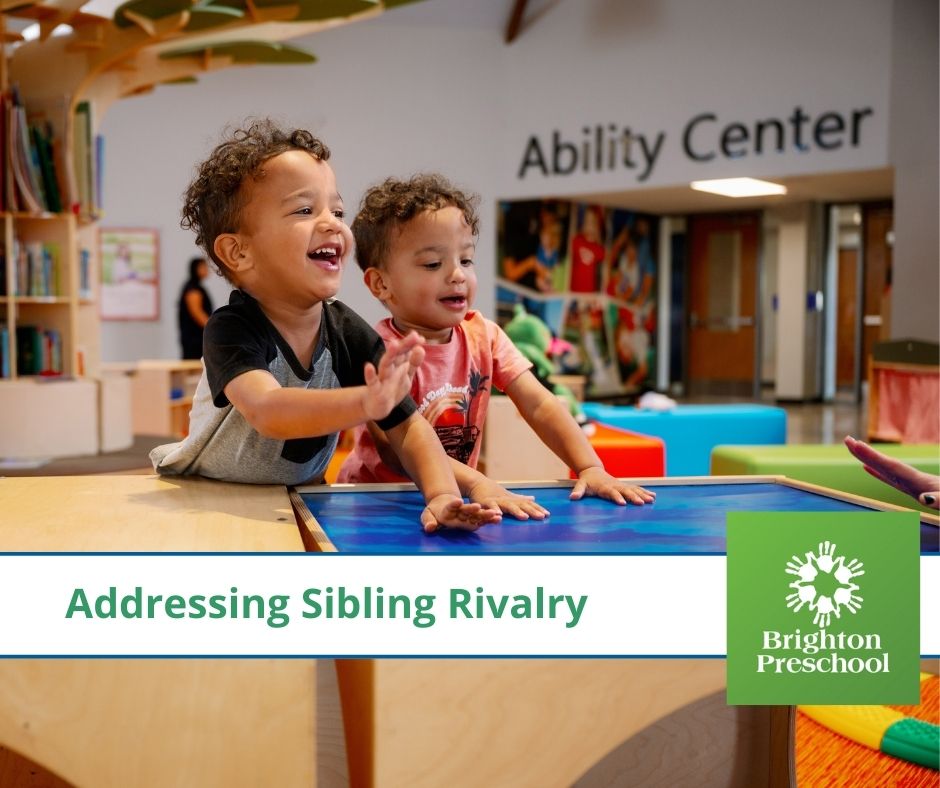Sibling rivalry, a common occurrence in many families, can be a source of tension and stress for parents. However, by understanding the underlying causes and employing positive parenting techniques, parents can transform sibling rivalry into an opportunity for growth, empathy, and strengthened sibling relationships. Join Brighton as we explore the dynamics of sibling rivalry, delve into the reasons behind its occurrence, and discuss effective strategies for using positive parenting techniques to address and manage sibling rivalry, fostering a harmonious and supportive family environment.
Cause of Sibling Rivalry
Sibling rivalry arises from various factors, including competition for parental attention, differences in temperament and personalities, and the need for autonomy. Siblings may engage in conflicts, comparisons, and power struggles as they navigate their roles within the family dynamic. Understanding the normalcy of sibling rivalry helps parents approach it with empathy and patience.
 Empathy involves putting yourself in your children’s shoes, recognizing and validating their feelings and perspectives. It allows you to empathize with their frustrations, disappointments, and the need for attention or validation. By empathizing, you create a safe space for your children to express themselves and feel understood. Patience is equally important in dealing with sibling rivalry. In fact, it is normal for siblings to have conflicts and disagreements, and it takes time and patience to navigate through these challenges. Patience allows you to remain calm and composed, even during heated moments. Furthermore, it helps you avoid reacting impulsively or taking sides, allowing your children to find resolution and learn important problem-solving skills on their own. Patience also allows you to give each child individual attention and address their unique needs, without favoritism or bias.
Empathy involves putting yourself in your children’s shoes, recognizing and validating their feelings and perspectives. It allows you to empathize with their frustrations, disappointments, and the need for attention or validation. By empathizing, you create a safe space for your children to express themselves and feel understood. Patience is equally important in dealing with sibling rivalry. In fact, it is normal for siblings to have conflicts and disagreements, and it takes time and patience to navigate through these challenges. Patience allows you to remain calm and composed, even during heated moments. Furthermore, it helps you avoid reacting impulsively or taking sides, allowing your children to find resolution and learn important problem-solving skills on their own. Patience also allows you to give each child individual attention and address their unique needs, without favoritism or bias.
When practicing empathy and patience, it is crucial to actively listen to your children. By listening attentively, you show them that their feelings and opinions matter, and that you value their perspective. It helps you gain insights into the root causes of their conflicts and provides an opportunity to guide them towards constructive solutions. By fostering open communication, you create an environment where your children feel comfortable expressing their emotions and working through their differences.
Valuing Individuality
Encouraging and valuing each child’s individuality is vital for mitigating sibling rivalry. Recognizing and celebrating each child’s unique strengths, interests, and talents helps them feel acknowledged and appreciated. Allocating one-on-one quality time with each child fosters a sense of individual connection, strengthening their bond with parents and reducing feelings of competition. Encouraging individual problem-solving skills helps children develop autonomy and independence, reducing dependency on parental intervention for resolving conflicts. Teach siblings to identify their feelings, articulate their needs, and brainstorm solutions together. Encourage compromise and negotiation, guiding them through the process of finding mutually agreeable resolutions.
 Promoting a cooperative and teamwork-oriented atmosphere helps minimize sibling rivalry. Teaching children effective communication and conflict resolution skills equips them with the tools to navigate sibling conflicts constructively. Encourage open dialogue, active listening, and the expression of emotions in a respectful manner. Teach children problem-solving strategies such as compromising, negotiating, and finding win-win solutions. Mediate conflicts when necessary, allowing siblings to express their perspectives and facilitating resolution through empathy and understanding.
Promoting a cooperative and teamwork-oriented atmosphere helps minimize sibling rivalry. Teaching children effective communication and conflict resolution skills equips them with the tools to navigate sibling conflicts constructively. Encourage open dialogue, active listening, and the expression of emotions in a respectful manner. Teach children problem-solving strategies such as compromising, negotiating, and finding win-win solutions. Mediate conflicts when necessary, allowing siblings to express their perspectives and facilitating resolution through empathy and understanding.
Engaging children in activities that require collaboration, problem-solving, and shared responsibilities instills a sense of mutual support and achievement. Encouraging siblings to work together on household chores, projects, or creative endeavors fosters a sense of camaraderie and shared purpose.
Positive Modeling for Children
 Parents serve as influential role models for their children. By modeling positive behavior, demonstrating empathy, and treating each child fairly and respectfully, parents set the foundation for harmonious sibling relationships. Moreover, by encouraging acts of kindness, sharing, and empathy among siblings, we reinforce the importance of understanding and valuing each other’s feelings. Establishing clear boundaries and fair discipline practices is essential for managing sibling rivalry. Consistently communicate family rules, expectations, and consequences. Treat each child equally, avoiding favoritism or comparisons. Implement appropriate consequences for aggressive or hurtful behavior, emphasizing the importance of kindness and respect. Encourage siblings to resolve conflicts independently, stepping in only when necessary to ensure safety or facilitate resolution.
Parents serve as influential role models for their children. By modeling positive behavior, demonstrating empathy, and treating each child fairly and respectfully, parents set the foundation for harmonious sibling relationships. Moreover, by encouraging acts of kindness, sharing, and empathy among siblings, we reinforce the importance of understanding and valuing each other’s feelings. Establishing clear boundaries and fair discipline practices is essential for managing sibling rivalry. Consistently communicate family rules, expectations, and consequences. Treat each child equally, avoiding favoritism or comparisons. Implement appropriate consequences for aggressive or hurtful behavior, emphasizing the importance of kindness and respect. Encourage siblings to resolve conflicts independently, stepping in only when necessary to ensure safety or facilitate resolution.
Sibling rivalry is a natural part of family dynamics. Nonetheless, through positive parenting techniques, parents can transform conflicts into opportunities for growth, empathy, and stronger sibling relationships. By understanding the nature of sibling rivalry, fostering individuality and bonding, encouraging cooperation and communication, modeling positive behavior, setting boundaries, and fostering individual problem-solving skills, parents can create a harmonious family environment. Furthermore, remember that building a positive sibling relationship takes time. Be patient as your children navigate their way through their differences and grow closer over time. Celebrate the moments of cooperation and kindness and provide guidance and support when conflicts arise. Ultimately, empathy and patience create an environment where children feel loved, understood, and supported, fostering their emotional well-being, and strengthening their sibling bond.
Your next step on this journey is to visit the Preschool with your family. That’s right, your family is encouraged to visit with us! We enjoy showing children the classrooms and playgrounds as well as talking with the adults about our curriculum.
Book Your Personal Preschool Tour Now!
We tour families every Tuesday and Friday. We are an appointment-only facility to protect your family. If that day doesn’t work for you, please let us know and we can schedule something specific that fits your needs.









